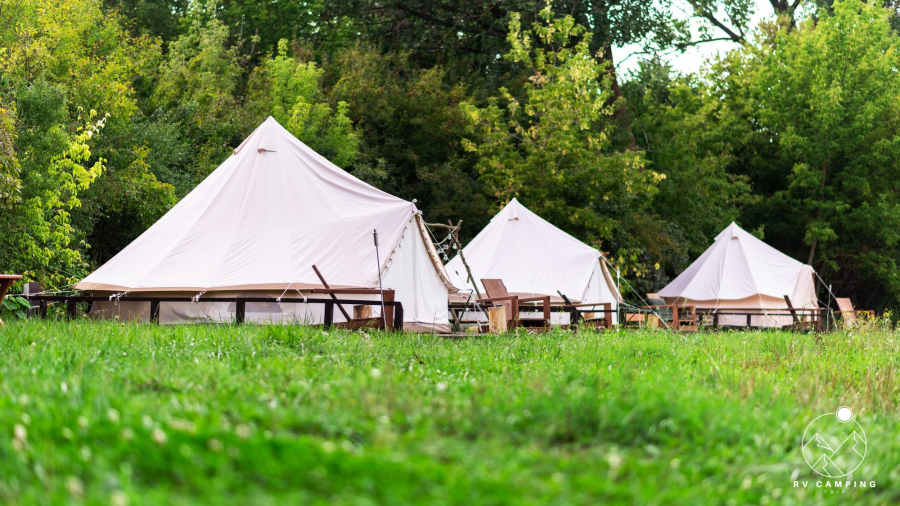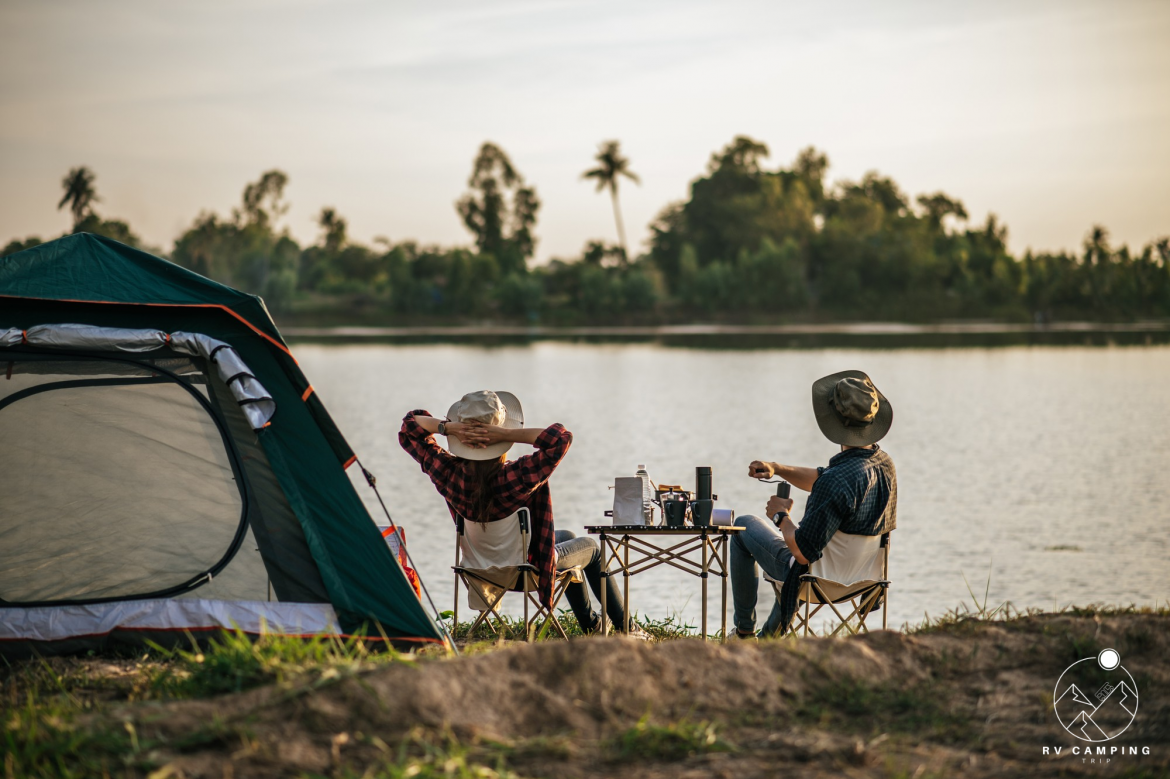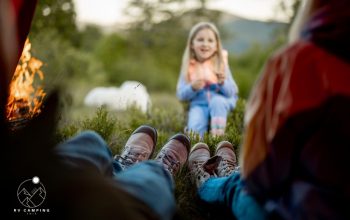Camping is an exciting adventure (even for beginners) that provides an escape from the daily grind and immerses you in nature. Whether you’re seeking peace and solitude or a fun-filled family trip, camping has something for everyone.
Things to Know Camping for Beginners
It can seem like a daunting experience if you’re new to camping. With so many things to consider, it’s easy to feel overwhelmed. But fear not!
In this article, we’ll take you through everything you need to know about camping as a beginners, so you can confidently enjoy your adventure.
What You Need
The first step to a successful camping trip is to be well-prepared. You’ll need to bring the right gear, food, and supplies to ensure a comfortable and safe experience. Here’s a list of the essentials:
- Tent: Choose a tent that’s big enough for your group and easy to set up. Make sure it’s waterproof and has good ventilation.
- Sleeping bag: A warm sleeping bag is essential for a comfortable night’s sleep. Choose one that’s rated for the lowest temperature you expect to encounter.
- Sleeping pad: A sleeping pad provides insulation from the cold ground and extra comfort.
- Backpack: A good backpack is essential for carrying your gear and supplies. Make sure it’s comfortable and has enough space for everything you need.
- Cooking equipment: You’ll need a portable stove, fuel, pots, pans, and utensils for cooking and eating.
- Food and water: Plan your meals and bring enough food and water to last the duration of your trip.
- Clothing: Dress in layers and bring clothes that are appropriate for the weather. Make sure you have a waterproof jacket and comfortable hiking shoes.
- First-aid kit: A basic first-aid kit should include bandages, pain relievers, and necessary medications.
Where To Camp
Public Campgrounds
Public campgrounds are large areas of land where people can go to pitch a tent or park a recreational vehicle and camp overnight. with their vibrant environment and bustling campers’ activities. They are perfect location for families, groups of friends, and lone travelers alike.
The diversified scenery, ranging from lush woods to wide meadows, contributes to various camping grounds’ complex and varied ambiance.
Most public campgrounds have a variety of amenities including: toilets, showers, picnic tables, and fire pits. Some campgrounds also have playgrounds, swimming pools, and stores.
Public campsites provide a one-of-a-kind outdoor experience.
Private Camping Areas
On the other hand, private campsites provide a more upscale camping experience with an emphasis on luxury and comfort.
Private corporations or people run these sites, which sometimes include more facilities than public campsites, such as private showers, restrooms, swimming pools, and playgrounds.
Private campsites are generally favored by individuals looking for a pleasant and revitalizing outdoor experience due to its more tranquil and serene ambiance.

Private campsites are a one-of-a-kind and deluxe camping option due to their pristine natural environment and high-end facilities.
However, please note that private camping areas may also have strict rules and regulations that must be followed to maintain the peace and quiet of the area.
Camping In Various Locations
The ability to pitch up camp wherever you like in designated wilderness areas makes dispersed camping the best in challenging and adventurous camping experiences.
With no defined campsites or facilities, scattered camping necessitates self-sufficiency and adherence to Leave No Trace standards. This sort of camping provides a raw and untamed environment, with scenery varying from rolling hills to towering mountain peaks.
Because of the absence of facilities and the requirement for self-sufficiency, scattered camping is a popular choice for experienced campers looking for a really authentic outdoor experience.
Camping for Beginners Etiquette
Leave No Trace
When camping in the great outdoors, it is important to leave no trace of your presence. This means packing out all of your waste and leaving the natural surroundings exactly as you found them.
Adhering to the principles of Leave No Trace ensures that future generations will have the opportunity to experience the beauty and serenity of the wilderness.
It requires a level of respect and mindfulness towards the environment and an understanding that preserving the land is a responsibility shared by all who use it.
Be Quiet
Quiet is an important aspect of camping. It allows you to commune with nature and appreciate the sounds of the wilderness around you. It also allows you to be alert for danger, such as predators or other hazards.
This means being mindful of the noise you produce and minimizing it, especially during nighttime when others are trying to get some rest.
Whether it’s turning down the volume on music, speaking in hushed tones, or simply avoiding loud and boisterous behavior, it’s crucial to maintain the natural ambiance of the environment.
Keep Fires Small
When it comes to building fires while camping, it’s essential to keep them small and contained. Not only is it safer, but it also minimizes the impact on the surrounding environment.
Remember, you’re in the wilderness, so it’s essential to be mindful of the resources available and use them sustainably.
Moreover, controlling the size of your fire will help prevent forest fires and maintain the beauty of the area for generations to come.
Respect Wildlife
Wildlife is a crucial part of the natural environment, and the camping experience and respect are essential. This means not leaving food out that will attract animals, not disturbing nests or dens, and keeping a safe distance from wildlife.
Instead, observe them safely, taking in the beauty and wonder of the creatures in their natural habitat. Additionally, store your food properly to prevent attracting wild animals to your campsite.
By showing respect for wildlife, you’re helping preserve the ecosystem and ensure that future generations can experience the same beauty and wonder you have.
Conclusion: Camping for Beginners
In conclusion, camping for beginners can be a great way to spend time with family and friends, connect with nature, and get some fresh air and exercise.
There are a few things to keep in mind when planning a camping trip, such as where to go, what to bring, and how to stay safe. However, with proper preparation, camping can be a rewarding experience full of memories to last a lifetime.
Whether you’re seeking solitude or looking for an opportunity to bond with friends and family, camping has something for everyone.





